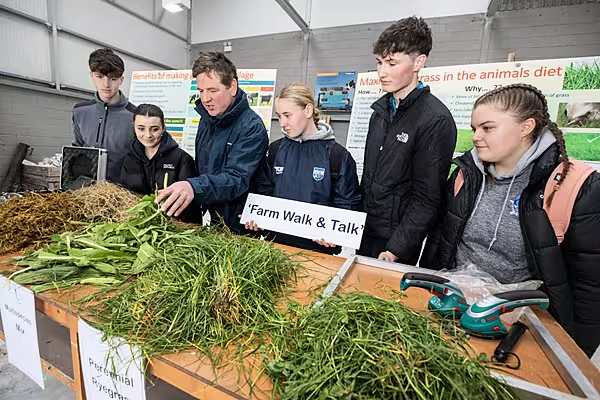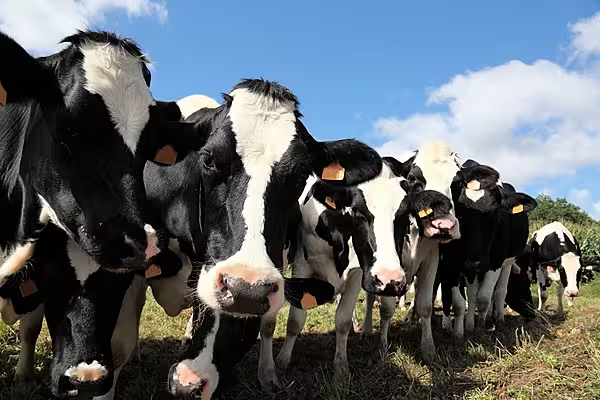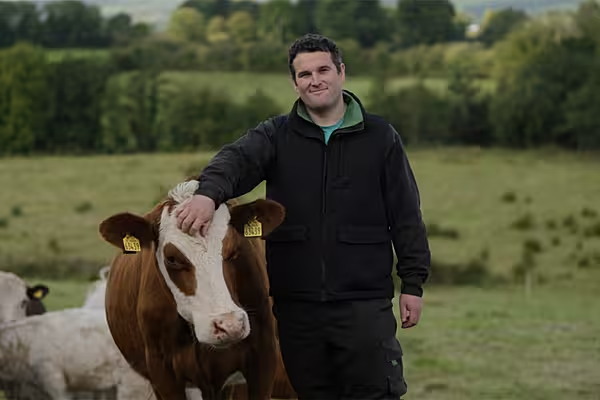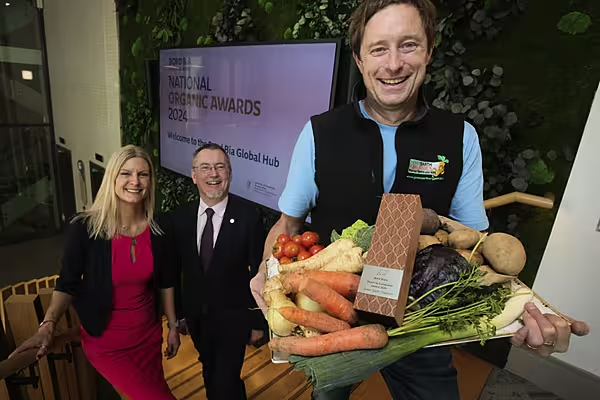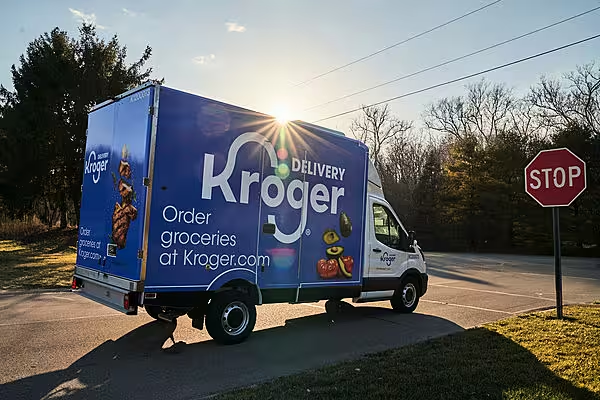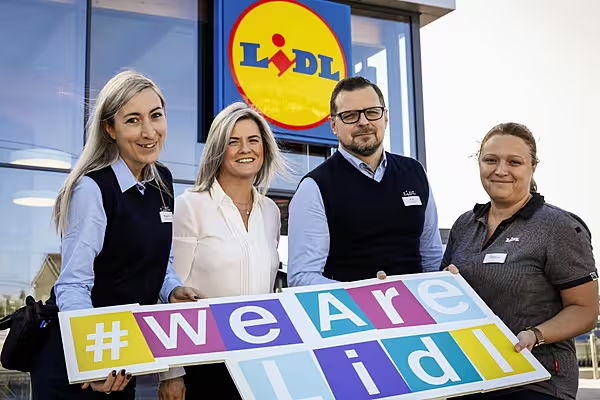The plant-based meat market is set to soar as Irish consumer's appetite for meatless alternatives grows. Donna Ahern talks to Greg Xavier, founder of Plant Based Ireland and mentor on the RTÉ TV series ‘My Yellow Brick Road'
Plant-based meat alternatives have Veganuary adherents are turning to Google to rise in the number of manufacturers producing taken the global grocery industry by storm. There is no doubt that this is a segment of the market whose voice is growing stronger and is resonating with today’s consumer.
While not everyone wants to fully commit to a 100% vegan lifestyle, terms such as ‘Flexitarianism’ and concepts such as ‘Meat Free Monday’ or ‘Veganuary’ are driving awareness and encouraging consumers to try alternatives to meat, even on an ad-hoc basis.
Consumers don’t have to be vegan to eat foods marketed as vegan or plant-based.
Research shows that veganism’s popularity is at an all-time high in Ireland as more and more Irish people are opting for a plant-based diet. Veganuary, in particular, has played a huge role in the rising popularity of veganism.
Spike In Vegan-Related Searches
Food and recipe outlet Chef's Pencil’s analysis of data from Google Trends revealed that there was a huge spike in veganism-related searches worldwide in January 2020. It showed that search for vegan recipes and vegan restaurants.
According to Chef’s Pencil, interest in Veganuary was at an all-time high in 2020, surpassing the prior all-time high registered in 2019, and it looks like Veganuary 2021 will be the most successful to date.
To put this in perspective, veganism is now twice as popular as it was just five years ago, and it doesn’t show any sign of slowing down.
The Chef’s Pencil data also showed that Ireland ranked 10th worldwide and 6th in Europe and it is the third consecutive year that Ireland ranks in the top 10 worldwide. It is also interesting to note that, according to the research, veganism is most popular in Galway, Dublin and Cork.
Brands On Board
The growing appetite for meat-free options is something that FMCG brands are very cognisant of, both in Ireland and across the globe.
Plant-based meat and dairy products have been one of the fastest-growing packaged food areas, and there has been a considerable plant-based products in the past two years, particularly in recent months.
Demand for plant-based foods picked up during the coronavirus crisis as consumers tried to eat more healthily and problems at some factories hit meat supplies.
In September, Nestlé said that it is investing heavily in plant-based products as it looks to step up innovation and meet the challenge of trendy local food brands. The company recently launched a plant-based Nesquik milk drink and a new version of its vegan burger.
"The interest in plant-based alternatives has been on the rise for a number of reasons," chief executive Mark Schneider told Reuters, citing problems in the North American meat supply chain.
The company noted that in spring of this year about 20 meat factories were closed in the US after thousands of coronavirus cases were reported.
"People also have a renewed interest in personal health and losing weight as Covid-19 particularly affects those with pre-existing health conditions," said Schneider.
Nestlé's sales of plant-based food jumped by 40% in the first half of 2020, after reaching €185.4 million last year. However, that was still a fraction of its total 2019 sales of €85.84 billion.
Last month, Unilever said that it expects sales of its plant-based meat and dairy products to reach €1 billion over the next five to seven years, helped by the growth of its Vegetarian Butcher brand and vegan varieties of Hellmann's mayonnaise and Magnum and Wall's ice cream.
The target supposes a quintupling of the business, said Hanneke Faber, president of Unilever's foods and refreshment business.
"It will require really, really high growth rates," she told Reuters. "It's a scary target honestly, but I think it's important that we set it."
Flexitarianism Meets Demand
Behaviour & Attitudes' online panel, Acumen surveyed 485 grocery shoppers online on behalf of Checkout magazine in February of this year to look at the extent to which consumers are reducing their meat in-take.
Almost two in five of the grocery shoppers surveyed said that they have cut down on their meat consumption.
The research revealed that satisfaction with stores’ meat-free offering is quite high and I expect it will strengthen further as stores continue to try to meet the demands of this dietary trend.
Grocery shoppers who are not currently on a specific meat-free diet were asked whether they have reduced their meat consumption. Just under two in five (39%) said they had cut back on the amount of meat they eat, with women and those aged under 34 the most likely to say this.
When the respondents who said that they have reduced their meat in-take were asked about what their primary motivation was for doing so, health (39%) and environmental (29%) reasons came out on top.
Those aged 16 to 34 years were the most likely to say that the environment was their main motivation for eating less meat.
According to the survey, health-related factors were most commonly cited by men, especially those aged 55+, and by urban dwellers.
The vast majority (81%) of those who have cut back on their meat consumption are satisfied with their main grocery stores’ meat-free offering, with just over one in 10 (11%) saying that they are very satisfied.
However, the research showed that there is scope for an even greater variety of options, as just under one in five (19%) admitted that they are dissatisfied when it comes to the selection of meat-free items available to them.
The Health Benefits
Speaking with Checkout, Greg Xavier, founder of Plant Based Ireland and mentor on the RTÉ TV series ‘My Yellow Brick Road,’ says that he has been following a plant-based diet for a decade.
In this period, he trained as a plant- based chef, qualified as a plant-based nutritionist and taught both nutrition and culinary skills in Europe, North America and Asia.
He founded Plant Based Ireland in 2017 to educate individuals and groups on how to transition to, and thrive on, a plant-based lifestyle.
So, what are the health and environmental benefits that consumers can expect if they switch to a vegan diet in January?
“First and foremost, vegan and plant-based are different terms with different meanings,” he says.
“Veganism is a philosophy that seeks to exclude the consumption of animal products in all areas of life, including diet."
"Vegan labelled foods are not necessarily healthy, but they do exclude animal-derived ingredients. Animal agriculture is touted as being a large contributor to greenhouse emissions, so by purchasing a vegan product you are potentially reducing your own individual contribution.”
Turning to what it means to embrace a plant-based lifestyle, he says that this is about eating a diet based on whole plants, i.e. fruits, vegetables, nuts and beans.
“The health benefits of increased nutritional intake, higher energy levels, and sustainable weight loss over time are all benefits of plant-based diets,” he says.
“While the terms vegan and plant-based are used interchangeably, the true health benefits are found by including multiple fresh, whole, and minimally processed foods in one’s diet, not by simply including foods that have an absence of animal products.”
So why are consumers purchasing more plant-based products?
“There are several factors diving the popularity of plant-based products,” he says.
“Politically and environmentally, you have the World Health Organisation, the UN and public figures such as David Attenborough all calling for individuals to reduce their meat intake and switch to plant-based alternatives. From a health point of view, the field of lifestyle medicine is rapidly gaining credibility," he says.
"It aims to treat the problem of chronic diseases in the western world, such as diabetes, heart disease, and obesity, using lifestyle, of which diet is a large component. Finally, celebrities and professional athletes are adopting plant-based diets, which is influencing millions of younger consumers. Everyone from Kylie Jenner, Beyoncé, and Will Smith to Lionel Messi, Novac Djokovic and Lewis Hamilton are speaking publicly about the positive impact of plant-based eating through their social media accounts and more.”
‘Plant-based’ Diets Go Mainstream
Aside from the increase in the number of people opting for a strictly vegan diet, flexitarian diets are also on the rise. “Apart from the celebrity and professional-athlete influence, consumers are much more comfortable with the plant-based label as it is less loaded than veganism,” says Xavier.
“The vegan movement was seen by some to be quite radical and fundamentalist, and that turned a lot of people off the idea. Over the next few years you will see the decline of ‘vegan diets’ and mainstream acceptance of ‘plant-based’ diets.”
So what should grocery retailers do to ensure that they can keep up with the demand from their consumers?
In order to encourage shoppers to buy more vegan and plant-based produce, visibility in store is key.
Xavier suggests that labelled or dedicated sections take the work out of choosing products for consumers. If the retailer has a plant-based section in their shop, consumers do not have to waste time reading labels or evaluating whether a product contains animal or plant-derived ingredients.
He suggests that grocery retailers allocate dedicated plant-based or vegan fridge sections in store and place the items front and centre to showcase the shop’s diverse offerings to all customers.
“With international bodies such as the WHO, politicians, celebrities, athletes, and even medical institutions such as the Harvard Medical School, promoting plant-based eating, it is not a flash in the pan and is here for the long haul,” he says.
© 2020 Checkout – your source for the latest Irish retail news. Article by Donna Ahern. Click sign-up to subscribe to Checkout.

